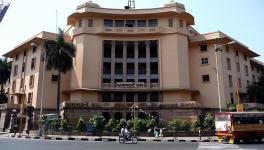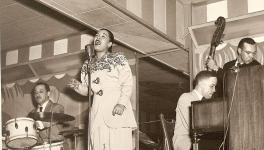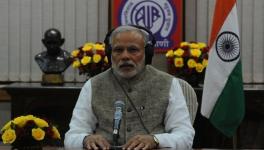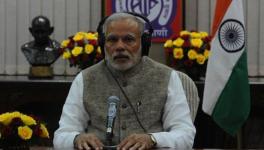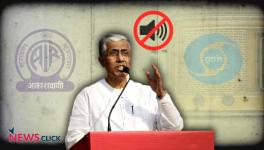All India Radio Will Now be Known Only by its Hindi Name -- Akashvani
New Delhi: The NJP government at the Centre has announced that All India Radio (AIR) will now be known as Akashvani, its Hindi name. This change was announced in a satellite message on May 3, relayed from the policy division of the office of the director general, Akashvani, to all centres across the country.
The Ministry of Information and Broadcasting (I&B) has decided to enforce a provision of the law by which the radio vertical of Prasar Bharati will now be called only Akashvani. The following radio bulletin that people listen to on the government-run service will begin with the announcement, "This is Akashvani", instead of "This is All India Radio."
According to a report published in the Hindustan Times, Gaurav Dwivedi, the chief executive officer of Prasar Bharati, the parent organisation of Akashvani, said, “This was long pending and in line with the law which came into being in 1997. Our listeners have more of a connect with Akashvani, and so we are ridding ourselves of colonial baggage that may have persisted.”
This move has been made as part of an effort to shed the ‘colonial baggage’ associated with the name, All India Radio. The Prasar Bharati (Broadcasting Corporation of India) Act, 1990, which came into force in November 1997, has a provision, Section 2 (A), which defines “Akashvani” to mean “the offices, stations and other establishments by whatever name called, which immediately before the appointed day formed part of or was under the Director General, All India Radio of the Union Ministry of Information and Broadcasting.” The ministry has now decided to implement this provision after 26 years.
“The aforesaid statutory provision, which has replaced the name of AIR with Akashvani, may be brought to the attention of all so that names and titles get in tune with the provisions of the Prasar Bharati Act, 1990, passed by Parliament,” the order said.
Though AIR has been officially known as Akashvani- a name proposed by Rabindranath Tagore meaning “voice from the sky” - since 1956, both were used in radio shows and broadcasts.
Even on Wednesday, the English morning news bulletin- broadcast at 8.15 a.m- carried the All India Radio name in its introduction. But by the afternoon news bulletin, broadcast at 4.05 pm, the announcer had switched to Akashvani.
“Akashvani has been used as an opening for broadcasts in several other languages for years,” said former Prasar Bharati CEO Shashi Shekhar Vempati, as quoted in various media reports.
“AIR predates independent India and has been the conveyor of several momentous occasions in history. One of the first broadcasts by C Rajagopalachari talks of the power of transformation that the radio wields. Even today, the Akashvani Bhawan has a message by CV Raman that captures how the radio works as a mathematical equation,” he added.
Akashvani today broadcasts in 23 languages and 146 dialects, reaching almost the entire population. The external services division broadcasts in 11 Indian and 16 foreign languages, reaching 100 countries, while the news division puts out 647 bulletins daily for a total duration of nearly 56 hours in about 90 languages and dialects.
As per reports, radio began its journey in India in June 1923 when the Radio Club of Bombay made the first broadcast. AIR began its journey on June 8, 1936, when the then-colonial government renamed the Indian Broadcasting Company. The Akashvani name was added in 1956. Following this, the Vividh Bharati Service was launched in 1957 with popular film music as its main component.
However, there are still questions about other legacy names associated with the service. For example, Vividh Bharati, which was started in 1957 as an answer to the famous Radio Ceylon, still has a budget under “commercial broadcasting service” in the Union budget. Some experts have argued that if the government is serious about doing away with colonial legacies, it should also consider changing the name of Vividh Bharati.
Former CEO of Prasar Bharati, Jawhar Sircar, has also pointed out to the media that the law is unclear on what happens to offices set up after November 15, 1997. He argues that if the aim is to do away with colonial legacies, the government should also consider changing the name of Vividh Bharati and other legacy names associated with the service.
Get the latest reports & analysis with people's perspective on Protests, movements & deep analytical videos, discussions of the current affairs in your Telegram app. Subscribe to NewsClick's Telegram channel & get Real-Time updates on stories, as they get published on our website.









